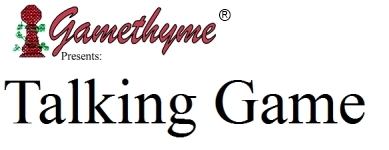Those of you new to the blog will find an explanation of what this "Character Generation Project" is here. As always, the questions are in bold and my comments are italicized.
This is the fourth game for which we have generated a character. This link will take you to all posts in the blog which are tagged with "Character Generation Project."
| First Page - Click here for larger view. |
Which game is this for?
It's worth noting that this game has gone out of print - you can buy other games which use the same core system here. They are mostly cross-compatible (Smallville and Leverage use a heavily modified version of the system that is sheer genius).
How long did it take you to generate the character?
A couple of hours, but not steadily
Stephanie made this character on a train enroute to California to visit a friend.
What was your character concept going into generation?
Pilot/mechanic, smarter than he is strong
Did you feel like character generation captured the flavor of the setting? Did this influence your decision-making process during character generation?
It moved me to be more of a lawman than I had originally planned and it did capture the setting well.
How much control did you feel like you had during character generation?
Plenty - Traits and Skills helped flesh out the character well.
| Second Page - Click here for a larger view |
Did the game help you make the character you wanted, or did it feel like you were fighting the game?
It worked with me - I didn't have to fight.
Do you like the character you ended up with?
Yes
Do you think your character fits your concept?
Yes
Do you feel like your character would be effective and/or useful in a game?
Yes - not the greatest fighter, but smart and valuable.
Was there anything in particular that you struggled with mechanically?
Finding where the Traits points came from - I missed the initial mention, and having Attributes first threw me. Also, I couldn't find how to calculate Endurance and Resistance right away.
Did anything run more smoothly than you had expected?
Overall, it was very smooth.
What changes would you have made to the character generation process?
Traits before Attributes, and including Endurance and Resistance with the rest of character generation. Other than that, and doing this on a bouncing train, it was all good.
Did anything leap out at you as obviously broken or unbalanced?
No - the balance of points and the Assets and Complications helped balance the generation overall.
What led you to choose this game as the next one to make a character for?
I love Firefly .
.
I can't blame her - it's a great show, for those two or three of you who haven't seen it.
How would you compare your experience with this game to your experience with other games?
One of the better ones - complications were mostly due to being on a bouncing train.
Is this a character you would be willing to play in a campaign?
Yes
Does this character make you want to play this game?
Yes!
Did you notice the exclamation point? She has a form she fills out to answer these - I didn't add the exclamation point.
Do you have any other questions, comments, etc.?
If Traits affect Attributes, it would make more sense to put them before Attributes in the book to make it flow better.
Have you given any thought to what game you'd like to do next?
Not yet.
